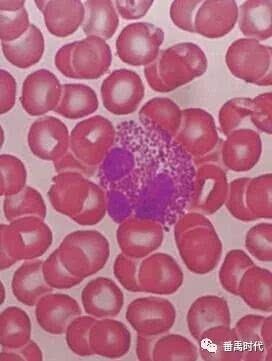Leukopenia is prone to recurrent respiratory tract infection.

The ninth power / L of leukocytes less than 4.0: 10 is called leukopenia. The main symptoms are dizziness, fatigue, palpitation, fatigue, drowsiness and so on. And prone to respiratory or digestive tract and other system infections, such as cough, expectoration, abdominal pain, diarrhea, stomatitis, fever, and so on. Some leukopenia is mild and some are severe, severe leukopenia is easy to be complicated with respiratory tract and other serious infections, and even life-threatening.
Especially when leukopenia is granulocytopenia patients, often sudden onset, fear of cold and high fever, sore throat and so on, should be treated timely and thoroughly. Patients with mild leukopenia may not have any symptoms or discomfort, and there will be no infection in the pit. However, once patients with leukopenia have recurrent respiratory infections, it is necessary to pay close attention to treatment in order to eliminate the aftermath.
Therefore, patients with granulocytopenia and their relatives and friends should have a comprehensive understanding of leukopenia. Western medicine believes that neutropenia is caused by allergic reactions of sensitive bodies to drugs or chemicals. One is the disturbance of granulocyte proliferation and maturation (aplastic type), the second is the destruction and loss of granulocytes (immune type), and the third is abnormal granulocyte distribution. Neutropenia in traditional Chinese medicine is completely different from that in western medicine.
In the destruction and loss of granulocytes in western medicine (immune type), it can be divided into viral infections such as influenza, measles, viral hepatitis, chicken pox and so on. And autoimmune diseases (such as lupus erythematosus, rheumatoid arthritis), granulocyte antibodies are present in the blood, and immune antibodies are also present after multiple blood transfusions and chronic active hepatitis. As well as hypersplenism, neutrophils decrease due to increased destruction of granulocytes by splenic reticular endothelial cells.
Traditional Chinese medicine's understanding of leukopenia such as neutropenia is as follows: first, congenital deficiency, weak endowment; second, overwork, damaging the five internal organs; third, unregulated diet, injury to the spleen and stomach; fourth, long-term illness, loss of conditioning; fifth, external evil invasion and so on. From the point of view of traditional Chinese medicine, it can be divided into congenital factors, exogenous factors and internal injury factors. Traditional Chinese medicine says that "the kidney is the congenital foundation, and the spleen is the acquired foundation", so the congenital deficiency lies in the treatment of the kidney.
Leukopenia caused by exogenous and internal injuries is acquired, so it focuses on the treatment of the spleen. From clinical cases, leukopenia mostly involves the heart, liver, spleen, kidney and other internal organs, and is mainly closely related to the spleen and kidney. The essence and blood are homologous, the essence is full of blood, the essence is deficient in blood, and the deficiency of spleen and kidney leads to fatigue, dizziness, palpitation and susceptibility to fever. How to treat it clinically, traditional Chinese medicine needs clinical syndrome differentiation.
- Prev

These three kinds of vegetables are most suitable for balcony potted plants to eat in a pot for half a year and grow quickly.
Shu Mei loves the car. Thank you for reading Xiaobian's article. These three kinds of vegetables are most suitable for balcony potted plants. Plant a pot to eat for half a year, delicious and grow fast! 1. Spring onions are essential vegetables in our daily life. They are delicious no matter how they are eaten. ...
- Next

Garlic farmers have to bolt garlic every year without bolting what will happen to garlic growth?
Abstract: bolting garlic is very tiring, what will happen without bolting? Garlic is a good thing, and the whole body is a treasure. Speaking of garlic moss, perhaps the first thing that comes to mind is scrambled eggs with garlic moss and fried meat with garlic moss, which is a very delicious.
Related
- Wuhan Hospital Iron Tree Blooming Result Was Instantly Frightened by the Gardener Master
- Which variety of camellia is the most fragrant and best? Which one do you like best?
- What is the small blue coat, the breeding methods and matters needing attention of the succulent plant
- Dormancy time and maintenance management of succulent plants during dormancy
- Minas succulent how to raise, Minas succulent plant pictures
- What are the varieties of winter succulent plants
- How to raise succulent plants in twelve rolls? let's take a look at some experience of breeding twelve rolls.
- Attention should be paid to water control for succulent plants during dormant period (winter and summer)
- Watering experience of twelve rolls of succulent plants
- Techniques for fertilizing succulent plants. An article will let you know how to fertilize succulent plants.

